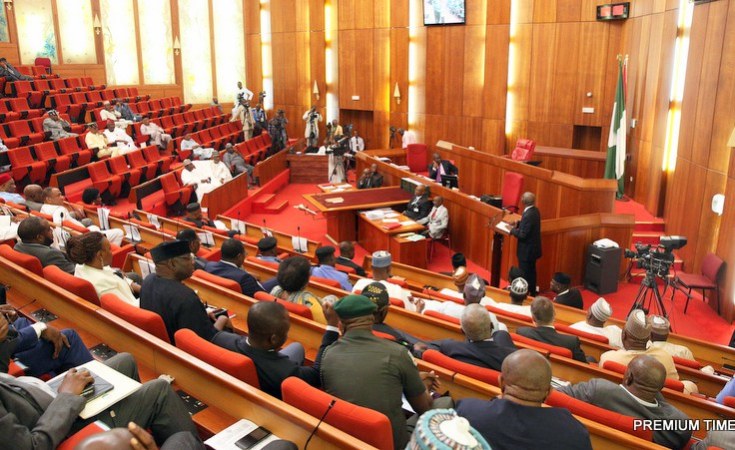The lawmakers slammed revenue-generating agencies of the federal government for running inefficient systems.
The House of Representatives has passed the Medium Term Expenditure Framework and the Fiscal Strategy Paper (FSP) for 2024/2026.
The lawmakers passed the framework on Tuesday after considering the report submitted by the House Committee on Finance during plenary.
President Bola Tinubu transmitted the framework to the National Assembly on 31 October for approval in line with the Fiscal Responsibility Act.
The House subsequently referred the proposal to the finance committee.
The president transmitted the document to the lawmakers ahead of the presentation of the 2024 budget.
Recommendations
The committee, chaired by James Faleke (APC, Lagos), presented the report to the House with some recommendations on revenue generation.
The House adopted the benchmark oil price of $73.96, $73.76 and $69.90 per barrel for 2024, 2025, and 2026 respectively.
The daily crude oil production was pegged at 1.78 Mbps, 1.80 Mbps, and 1.81 Mbps, for 2024, 2025, and 2026 respectively.
The lawmakers agreed on the exchange rate of N700, N665.61 and N669.79 to $1 was adopted for 2024-2026.
The lawmakers retained the N26 trillion expenditure proposed by the government with N16.9 trillion in retained revenue and a budget deficit of N9 trillion.
In addition, the N1.3 trillion estimated for statutory transfer was retained alongside the N8.2 trillion for debt servicing.
Revenue-generating agencies inefficient
The committee stated that some revenue-generating agencies are still using analogue systems instead of information and communication technology (ICT) for their activities.
"Many agencies, particularly those in charge of collecting stamp duties, do not use information and communication technology (ICT) effectively for revenue collection," the report stated.
Consequently, the House resolved that federal government agencies must ensure the deployment of ICT in the collection of all revenues by MDAs including stamp duty collection activities to block leakages.
Also, the House resolved that the federal government should continuously assess the qualifications and performance of agency heads to guarantee that the government's total income target as stated in the MTEF/FSP and the yearly budgets is consistently met with adequate sanctions necessary.
NIPOST subsidiaries, N10 billion recapitalisation fund
The House also directed a probe into the N10 billion the Minister of Finance injected into NIPOST for its restructuring and recapitalisation.
In addition, the House described the creation of NIPOST subsidiaries as illegal and ordered their deregistration.
"The subsidiaries of NIPOST Properties Limited and NIPOST Transport and Logistics Limited were created with individuals as shareholders without any share allotted to the organisation as an entity.
"The sum of N10 billion released by the Ministry of Finance for the proposed NIPOST restructuring and recapitalisation be investigated and the funds fully recovered if established to be injudiciously utilised by the relevant committee of the Assembly charge with the responsibility of fiscal prudence," the report reads in part.
In June 2020, the government said it had begun the process of unbundling NIPOST into three subsidiary companies which would operate on the principle of commercial viability.
However, the move by the government has been opposed by unions in the sector.
The National Union of Postal and Telecommunications Employees (NUPTE) had in January held a protest over the commercialisation of NIPOST.


